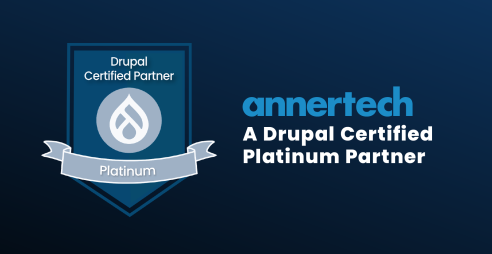Drupal 9 is Here - Upgrading has Never Been So Easy
With the recent release of Drupal 9, some of you may be wondering should we upgrade or should we wait? Is this a big undertaking?
To quote Dries Buytaert, Drupal founder and project lead "The big deal about Drupal 9 is... that it should not be a big deal".
Previously with every new major release of Drupal, the upgrade process was, let's say, challenging to say the least.
In the past, Drupal adopted the policy of "the drop is always moving" and never supported backwards compatibility. This had a number of benefits as it meant that the Drupal project could continue to innovate unhampered by legacy code. However, in practice it resulted in major rewrites and major changes, and longer and longer release cycles. It also inevitably led to a delay in the adoption of the newly released version while module maintainers worked on upgrading their code.
All of this meant that upgrading to new major releases was not a simple or straightforward process, and often a full rebuild of sites were required.
With the release of Drupal 8, all of this changed. Gone are the days of major rewrites and complicated upgrades. Instead the project moved to:
- New minor releases containing new features every 6 months
- Planned deprecations of APIs - here outdated code was marked as deprecated but not removed
- Provision of automated testing and tools to make updating existing code easier
Through this new release management process and a more agile approach to the rollout of new features, Drupal is now a really strong open source alternative in the enterprise content management system space.
What's new in Drupal 9?
With the release of Drupal 9, there are no major changes, no system overhauls, not even any new features! The only differences between Drupal 8.9.0 and Drupal 9 is that those deprecated APIs have now been removed, and a number of third-party dependencies (Symfony, Twig, etc) have been updated to newer versions which will be supported for longer.
This means that as long as you are already on Drupal 8, and have been keeping your site up-to-date, upgrading your site from Drupal 8.9.0 to Drupal 9 should be a relatively pain free process.
Are Drupal 7 and 8 still supported?
Yes, Drupal 7 and 8 will both be supported until November 2021, at which point both versions will reach their end-of-life (EOL). It is highly recommended that you upgrade to Drupal 9 before then. After this date, these versions will no longer be supported by the Drupal Security Team which means no future security patches or bug fixes will be released for these versions.
This is the first time that two major versions of Drupal will become unsupported at the same time. The timing of Drupal 8's EOL has been planned to coincide with the EOL of one of its third-party dependencies, Symfony 3. As the upgrade path from Drupal 8 to Drupal 9 is so simple, it is unlikely that any extended support will be available for Drupal 8 beyond this date.
Drupal 7 is a different story though. There will most likely be a small group of approved third-party agencies who will provide long-term security support for Drupal 7, for a fee of course, for those organisations which are not ready to undertake an upgrade just yet.
However, there is still a year and a half before they reach their end-of-life, so there is plenty of time to upgrade your site - you just need to start planning for it now.
Upgrading from Drupal 8
If you are using Drupal 8 already, then the process of upgrading to Drupal 9 is relatively seamless and pain-free.
- The first step you should undertake is to ensure that you are running the latest version of Drupal 8 and any contributed modules you may be using.
- Use the Upgrade Status module to check whether your custom code and contributed modules are Drupal 9 ready.
- If any contributed modules are not Drupal 9 ready, then check their issue queue and work with their maintainers to remove deprecated code.
- Remove deprecated APIs used in your own custom code too. The Rector module can assist in resolving these automatically.
- Lastly, make sure your hosting environment is compatible with the updated requirements of Drupal 9.
At this point you should be ready to upgrade to Drupal 9! Of course, as with any upgrade, we recommend taking a backup and testing it in a non-production environment first.
Upgrading from Drupal 7
There is no upgrade path from Drupal 7 to Drupal 8, or indeed Drupal 9. Essentially your site will need to be rebuilt from scratch and any content you want to retain migrated into the new structures. While this is a large undertaking and may seem a bit daunting, it's also a huge opportunity.
Drupal 7 was first released in January 2011. By the time it reaches its end-of-life in November next year, it will be over 10 years old! That's 10 years of no new features, other than what can be provided by contributed extensions. Ten years is a long time in the life span of any software, but particularly so in the online digital space, where technology advances rapidly.
Upgrading to Drupal 9 is the perfect time for you to re-evaluate your online digital strategy, to re-assess your messaging and positioning. It's a time to enhance and improve your customers' experience online. It's a time to take advantage of the new innovations and features released on the platform every six months.
At Annertech, we deliver ambitious digital experiences for our clients, and with Drupal 9 we know we have the ideal digital experience platform to deliver on that aim.
Isn't it time you started planning your upgrade now?
Is Drupal 9 on your roadmap?
At Annertech, we’re here to help you plan your Drupal 9 upgrade, so you can provide the right digital experience to your customers.

Stella Power Managing Director
As well as being the founder and managing director of Annertech, Stella is one of the best known Drupal contributors in the world.

